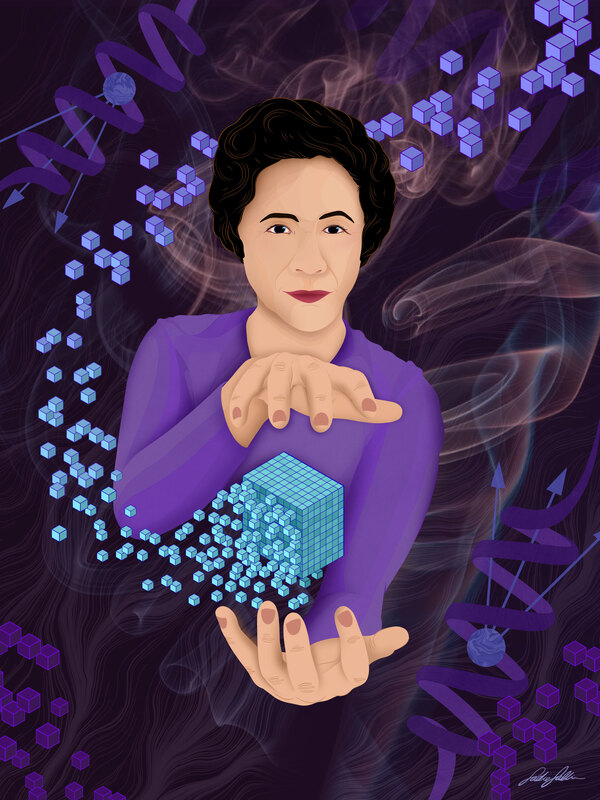|
Chien-Shiung Wu, 吳健雄 (1912-1997)
Liuhe, Taicang, Jiangsu, Republic of China Digital Illustration, 24" x 32", 2022 While working on the Manhattan Project, particle and experimental physicist Chien-Shiung Wu, made important contributions to the field of particle and nuclear physics. Using beta decay knowledge, Wu was able to separate uranium isotopes using gaseous diffusion. This led to her work on the B Reactor, the first practical nuclear reactor built and an important contribution to the Manhattan Project. In 1956, Wu left the Project due to its destructive outcome.
While working for the Low Temperature Group, Wu invented an experiment that tested the law of parity conservation, later name the “Wu Experiment.” This groundbreaking beta decay research was stolen by her two male colleagues, Tsung-Dao Lee and Chen-Ning Yang. They won the Nobel Prize in Physics in 1957 using her research and their findings. Her name was omitted from the prize but she later received the first Wolf Prize in 1978. Known as the “First Lady of Physics,” Wu became the first president of the American Physical Society. She spent her later years advocating for human rights in China. Wu also promoted the teaching of STEM to all students regardless of gender. |
Proudly powered by Weebly
